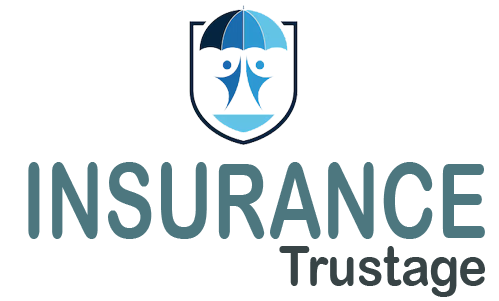1. Introduction to Health Insurance
Health insurance is a critical component of financial planning for individuals and businesses alike. It provides a safety net against the high costs of medical care, ensuring access to necessary treatments and services. This insurance can cover a range of healthcare expenses, including hospital stays, doctor visits, preventive care, and prescription medications. As health insurance continues to evolve, it is essential to understand its complexities, especially in relation to various specialty coverages that cater to specific needs.
2. How Can Directors and Officers (D&O) Insurance Protect Company Executives?
2.1 Overview of D&O Insurance
Directors and Officers (D&O) insurance is designed to protect the personal assets of corporate directors and officers, as well as the company itself, in the event they are sued for alleged wrongful acts while managing the company. This coverage is essential in today’s corporate landscape, where leaders face increasing scrutiny and legal risks.
2.2 Protection Offered by D&O Insurance
- Legal Defense Costs: D&O insurance covers the legal defense costs associated with lawsuits. This is crucial since legal fees can be exorbitant, potentially bankrupting executives without coverage.
- Settlements and Judgments: If a lawsuit results in a settlement or judgment against the directors or officers, D&O insurance can cover these costs, protecting personal assets.
- Regulatory Investigations: Executives may face investigations by regulatory bodies for alleged violations of laws or regulations. D&O insurance can cover the costs associated with these investigations.
- Broad Coverage: D&O policies typically cover a wide range of claims, including those related to employment practices, breach of fiduciary duty, and failure to comply with regulations.
- Attracting Talent: Offering D&O insurance can make a company more attractive to potential executives, who want assurance that their personal assets are protected.
3. Is Special Event Insurance Necessary for Weddings and Other Large Gatherings?
3.1 What is Special Event Insurance?
Special event insurance provides coverage for various types of events, including weddings, parties, and large gatherings. This insurance typically includes liability coverage for injuries or property damage occurring during the event.
3.2 Importance of Special Event Insurance
- Liability Protection: Events can pose numerous risks, from slip-and-fall accidents to property damage. Special event insurance protects hosts from potential lawsuits and claims.
- Cancellation Coverage: If an event needs to be canceled due to unforeseen circumstances, such as extreme weather or vendor failure, cancellation coverage can help recover non-refundable expenses.
- Vendor Requirements: Many venues and vendors require proof of insurance before allowing events to take place, making special event insurance a necessity for compliance.
- Peace of Mind: Knowing that an event is covered allows hosts to enjoy their occasion without worrying about potential financial repercussions from unforeseen incidents.
4. What Industries Typically Need Specialty Insurance Policies?
4.1 Overview of Specialty Insurance
Specialty insurance is designed to cover unique risks faced by specific industries or types of businesses. It is essential for industries that do not fit neatly within standard insurance policies.
4.2 Industries Requiring Specialty Insurance
- Healthcare: Medical professionals require malpractice insurance to protect against claims of negligence or malpractice.
- Construction: Builders often need contractors’ insurance, including general liability and workers’ compensation, to cover the risks associated with construction projects.
- Entertainment: Filmmakers, musicians, and event organizers often seek specialty insurance to cover risks unique to the entertainment industry, such as production delays or equipment damage.
- Technology: Companies in the tech sector may require cyber liability insurance to protect against data breaches and cyberattacks.
- Nonprofits: Nonprofit organizations often need directors and officers insurance to protect their board members from liability claims.
5. How Do I Choose the Right Specialty Insurance for My Business?
5.1 Assessing Your Business Needs
Choosing the right specialty insurance requires a thorough assessment of your business’s unique risks and needs.
- Identify Risks: Conduct a risk assessment to identify potential liabilities specific to your industry or business model.
- Evaluate Coverage Options: Research different specialty insurance policies available for your industry, comparing coverage limits, exclusions, and costs.
- Consult Professionals: Work with insurance brokers or agents who specialize in your industry to find policies tailored to your specific risks.
5.2 Understanding Policy Terms
- Coverage Limits: Understand the maximum amount the insurance company will pay in the event of a claim.
- Exclusions: Review what is not covered by the policy to avoid surprises during a claim.
- Deductibles: Determine how much you are willing to pay out of pocket before insurance coverage kicks in.
6. What Types of Risks Are Not Covered by Standard Insurance Policies?
6.1 Common Exclusions in Standard Policies
While standard insurance policies provide essential coverage, they often contain exclusions that may leave businesses vulnerable.
- Intentional Acts: Claims arising from intentional acts or criminal activity are generally not covered.
- Professional Services: Standard policies may not cover errors and omissions arising from professional services; separate professional liability insurance may be necessary.
- Contractual Liabilities: Liabilities assumed under a contract may not be covered unless explicitly stated in the policy.
- Natural Disasters: Many standard policies exclude coverage for certain natural disasters, such as floods or earthquakes, requiring additional policies for comprehensive protection.
7. How Much Does Professional Liability or E&O Insurance Typically Cost?
7.1 Overview of Professional Liability and E&O Insurance
Professional liability insurance, also known as errors and omissions (E&O) insurance, protects professionals against claims of negligence, errors, or omissions in the services they provide.
7.2 Factors Affecting Costs
- Industry: Costs can vary significantly by industry. High-risk industries, such as healthcare or construction, may face higher premiums.
- Coverage Amount: The higher the coverage limit, the more expensive the policy will be. Businesses must balance adequate coverage with cost considerations.
- Claims History: Companies with a history of claims may face higher premiums, as insurers view them as higher risk.
- Business Size: The size of the business and the number of employees can influence premiums, with larger companies typically paying more for coverage.
7.3 Average Costs
- Small Businesses: Small businesses may pay anywhere from $300 to $2,500 annually for professional liability insurance, depending on the factors mentioned above.
- Medium to Large Businesses: Larger businesses can expect to pay significantly more, with premiums ranging from $2,500 to $10,000 or more annually.
Conclusion
Health insurance plays a crucial role in the financial well-being of individuals and businesses, providing essential protection against the high costs of medical care. Understanding related specialty insurance, including D&O insurance, special event insurance, and professional liability insurance, is vital for comprehensive risk management. By assessing unique risks and choosing the appropriate coverage, businesses can safeguard their assets and ensure peace of mind in an unpredictable world.


